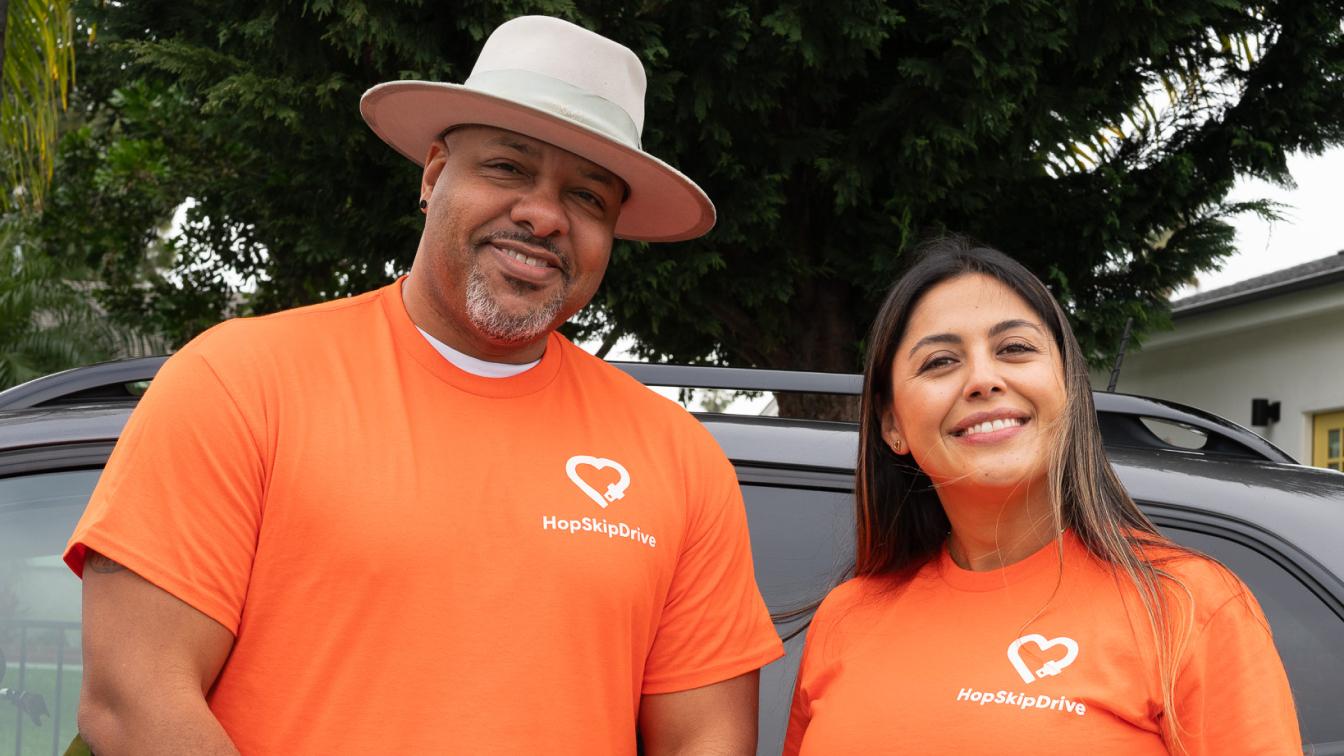The Link Between Transportation and Student Outcomes: A Dallas-Fort Worth Perspective

In the sprawling Dallas-Fort Worth (DFW) metroplex — in 2023, it was the fastest-growing metro area in the United States — the journey to school is far more than a simple commute. It’s the foundation for consistent attendance, enriched learning opportunities, and overall well-being. There’s long been a link between reliable, safe transportation and positive student outcomes, and this is readily evident in North Central Texas.
Between helping combat chronic absenteeism (which is affecting more and more students) and balancing educational equity, transportation emerges as a critical yet often underestimated factor in navigating the complexities of student success. And it is, therefore, something that should be at the forefront of DFW school administrators’ minds. This blog will explore exactly how transportation affects student achievement in the DFW metroplex.
The Attendance Imperative: Reliable Transportation Helps Combat Chronic Absenteeism
Chronic absenteeism poses a significant threat to learning. Alarmingly, post-pandemic data reveals a sharp increase, with nearly one in five Texas students being chronically absent in the 2022–2023 school year, almost double from 2018–2019. This challenge is particularly pronounced for students from lower-income backgrounds, for whom simply getting to school can be a daily struggle.
Unreliable transportation — a lack of personal vehicles, inconsistent public transit, or unsafe walking routes — directly fuels tardiness and absences, leading to lost learning time and potential disengagement. Research indicates that school bus eligibility decreases the probability of chronic absence for economically disadvantaged students by 20% to 25%. This data highlights the tangible impact of reliable transportation and why, in the era of the school bus driver shortage, more and more districts are starting to embrace innovative strategies like multimodal transportation.
Beyond the Bell: Safe, Reliable Transportation Encourages Extracurricular Participation
A well-rounded education extends far beyond classroom walls. Extracurricular activities cultivate vital social-emotional skills, nurture leadership qualities, and enrich student experience. To quote from our piece on the value of extracurricular activities for teens:
A 2020 University of British Columbia research study found that teens who participate in extracurricular activities like sports and art — especially girls — have better mental health and spend less time online, on their phones, and on social media. The study also revealed that taking part in extracurricular activities is associated with higher levels of optimism and life satisfaction, and lower levels of depression and anxiety.
Transportation barriers can unjustly prevent many students from participating in these crucial activities, limiting their growth and connection. Ensuring accessible transportation options can unlock a wealth of enriching experiences for all students across the DFW metroplex, regardless of their location or socioeconomic status.
The Equity Equation: Using Transportation to Level the Playing Field
The sprawling landscape of DFW presents significant disparities in transportation access. Students in more affluent areas often have readily available private transportation, while others depend on strained public transit or face lengthy commutes. This imbalance can exacerbate existing achievement gaps.
Moreover, even within seemingly affluent North Texas districts, the number of students experiencing homelessness is rising (reflecting national trends), adding another layer to the complexity of ensuring equitable access. Investing in efficient and equitable transportation solutions is not just a matter of logistics; it’s a crucial step towards leveling the playing field and ensuring every student has a fair chance to succeed.
There’s also a growing number of students with other unique needs, such as those in foster care or students with disabilities (a population that has grown significantly in Texas, with a 37.59% increase since 2013) served by IEPs. Both these groups are adversely affected by the lack of specialized transportation, and could use a boost in that department.
The Well-Being Factor: Reliable Transportation Can Help Ease Stress
The stress and uncertainty linked to unreliable transportation can affect a student’s mental and emotional well-being. Arriving late and flustered, or constantly worrying about the journey home, can induce anxiety and hinder the ability to focus on learning. Research underscores this: The Fort Worth Star-Telegram reports that longer commute times correlate with less sleep and exercise for students. Students can lose 1.3 minutes of sleep for every extra minute of commute, and those with commutes over 30 minutes average significantly less daily exercise. Safe, dependable transportation fosters a more positive and supportive school environment, allowing students to arrive ready to learn so they can fully engage.
Embracing Future-Ready Transportation Solutions in the DFW Metroplex
Dallas-Fort Worth school administrators are responsible for addressing the transportation challenges faced by students in the DFW metroplex. A multi-faceted approach tailored to DFW’s diverse student population and sprawling geography would help.
Optimizing traditional school bus services is one approach. Regularly reviewing and adjusting bus routes for efficiency and safety remains foundational. However, as highlighted by the need for more bus drivers at Fort Worth ISD, the reality underscores the limitations of relying solely on this model.
Multimodal Transportation Can Be the Solution
Multimodal transportation refers to using multiple modes of transportation to reach a destination, such as walking, biking, public transit, and private vehicles. HopSkipDrive helps to fill in transportation gaps as part of a multimodal student transportation system, leveraging this approach by providing supplemental rides in small vehicles alongside traditional school buses and other transportation options.
Tarrant County’s Keller Independent School District (ISD) has partnered with HopSkipDrive and is reaping the benefits. According to Leigh Cook, Director of Federal Programs & Academic Compliance at Keller ISD, this partnership not only helps reduce district transportation costs but also shortens commute times for students with specialized needs, leaving more time for learning.
DFW metroplex school districts could improve student transportation and outcomes by embracing a diverse range of transportation solutions, including exploring the significant benefits of specialized services like HopSkipDrive for students.
Interested in learning more about HopSkipDrive? Set up a chat with a member of our team today.


